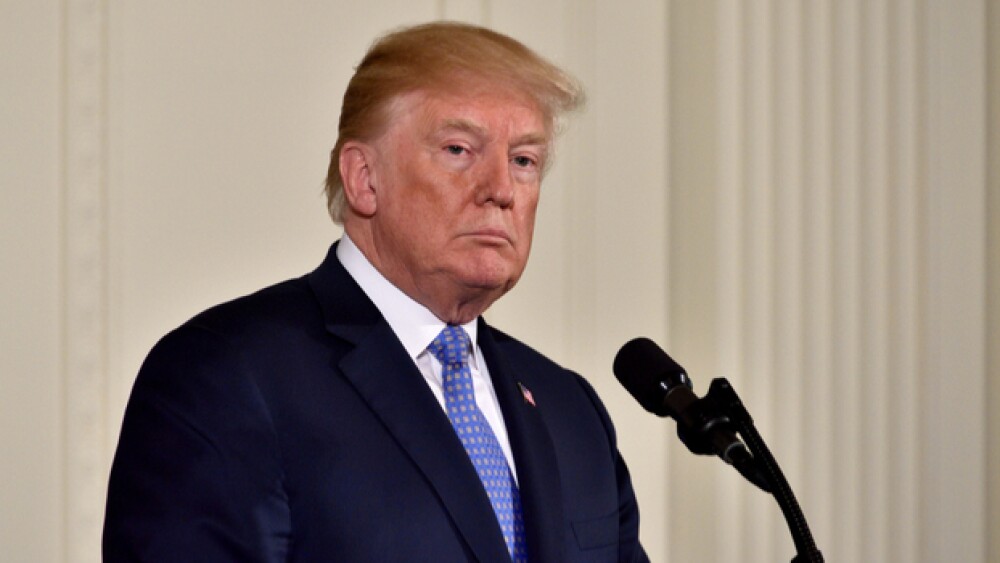The judge ruled that the U.S. Department of Health and Human Services did not have the authority to compel companies to disclose the list prices without Congressional approval.
Evan El-Amin / Shutterstock
A federal judge dealt a blow to the White House and its plans to lower drug prices by requiring the disclosure of wholesale pricing for prescription drugs. On Monday, U.S. District Judge Amit Mehta ruled the government’s mandate was not enforceable.
Mehta ruled in favor of a lawsuit filed last month by Merck & Company, Eli Lilly and Company and Amgen, as well as an advertising trade association that claimed the Department of Health and Human Services does not have the legal authority to force the companies to comply with the price disclosure mandate. Mehta agreed with the plaintiffs’ argument. In his ruling, he said that HHS lacked Congressional authority to compel the companies to disclose their prices, Reuters reported this morning. Mehti noted that pricing is a problem for many Americans, but said that “no matter how vexing the problem of spiraling drug costs may be, HHS cannot do more than what Congress has authorized,” Reuters added.
When the lawsuit was filed challenging the administration’s mandate, the parties involved claimed that requiring the disclosure of list prices on the prescription drugs would be confusing to most patients since that is the wholesale cost. It is not the retail price that most people who have insurance pay. When the lawsuit was filed, Amgen said in a statement that it does not agree with a “government-prescribed approach” regarding prices. The company said the pricing disclosure mandate raises “serious freedom of speech concerns” and mandates an approach that “fails to account for differences among insurance, treatments, and patients themselves, by requiring disclosure of list price.” Additionally, and, most importantly, Amgen said the rule does not answer the “fundamental question patients are asking: ‘What will I have to pay for my medicine?’” In its own statement, Merck said at the time the lawsuit was filed that the new requirement could frighten some patients into not seeking out a medication due to the list pricing disclosure.
Not only does the rule raise serious freedom of speech concerns but the rule is not in the best interest of patients because it fails to inform them– and indeed may cause them to be misled – about what they will pay for their medication,” Merck argued.
HHS announced the pricing mandate in May. Drugs covered by Medicare and Medicaid that were advertised on television would be required to disclose their list prices if they were more than $35 for a month’s supply. According to HHS, as reported by Reuters, the 10 most commonly advertised drugs have list prices ranging from $488 to $16,938 per month or for a usual course of therapy.
The administration said it wanted to arm patients with as much information as possible about the costs of their healthcare. It was likely that part of the intention was also to create a shaming effect in order to lower prices. The industry fought back. Drugmakers and industry representatives argued that list prices do not reflect the actual cost of drugs. Not only do they not take into account insurance coverage, they also fail to include discounts and rebates that are negotiated with health insurers and pharmacy benefit managers. Many of the companies already disclose their list prices on their websites.
The White House decried the ruling. In a statement issued to Reuters, the White House called it “outrageous.” A spokesperson said Mehti was appointed by President Barack Obama, the predecessor to Donald Trump, who sided with the pharmaceutical industry “to keep high drug prices secret from the American people, leaving patients and families as the real victims.”





